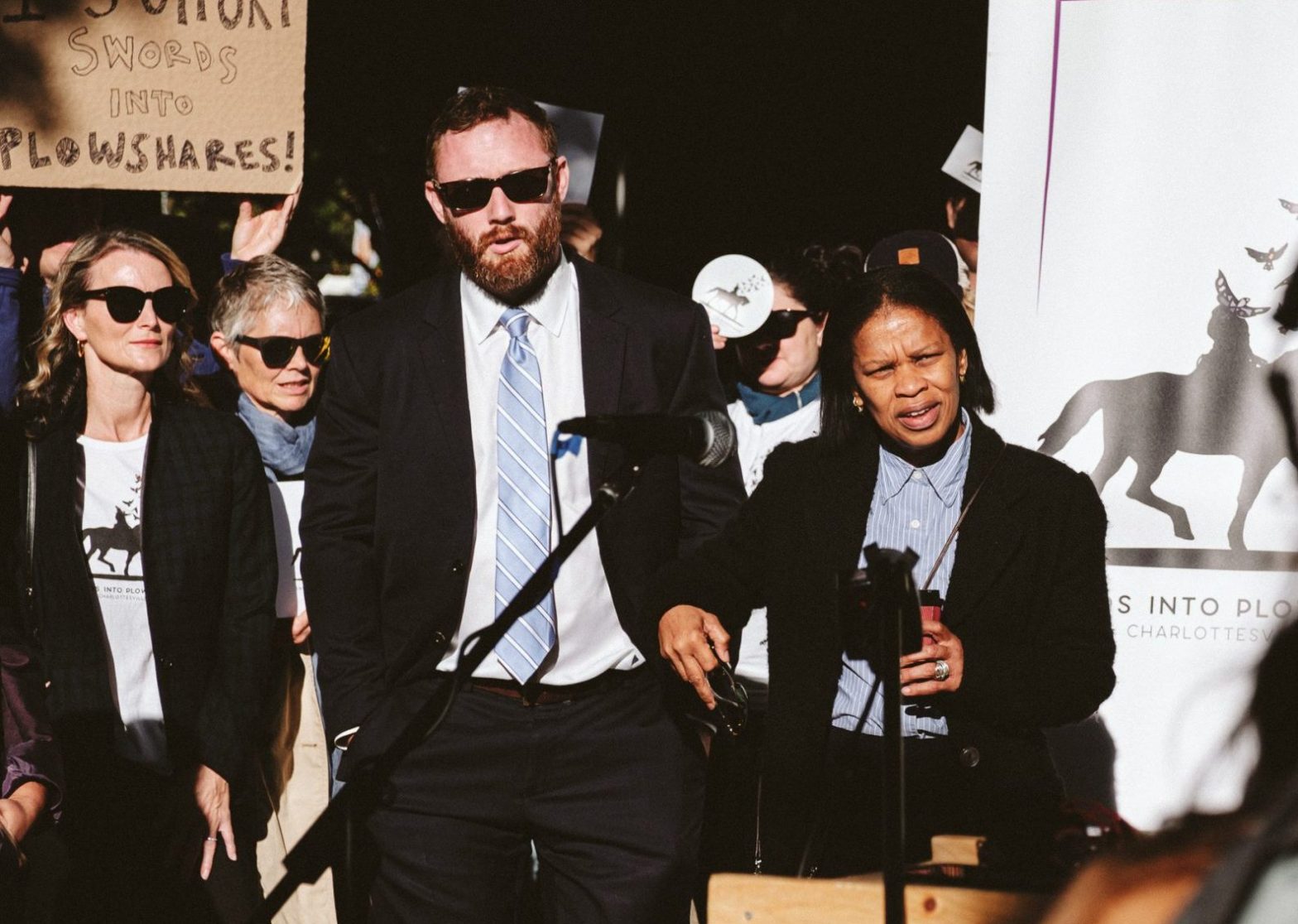Charlottesville Circuit Court ruled that a lawsuit to stop the city’s infamous Robert E. Lee statue from being melted down will go to trial in February.
On October 10, Judge Paul M. Peatross heard motions for the case filed against the City of Charlottesville by two organizations that unsuccessfully bid on the statue, the Trevilian Station Battlefield Foundation and the Ratcliffe Foundation. The plaintiffs—represented by the same attorneys as the Monument Fund, which sued the city for trying to remove the Lee and Jackson statues in 2017—claim the city violated state code, the Virginia Public Procurement Act, and the Freedom of Information Act in December when it donated the Lee statue to the Jefferson School African American Heritage Center, which plans to melt down the monument and use the bronze to create a new public artwork. (The Jefferson School was initially named as a second defendant but was later removed, and is now a party to the suit.)
“There weren’t really any surprises,” said lawyer Christopher Tate, representing the Jefferson School, following the hearing. “We again remain very confident in our legal position and think we’ll prevail in trial.”
“I feel pretty confident about what happened in the courtroom today,” added Jefferson School Executive Director Andrea Douglas, “and think that we are making significant strides towards the appropriate and proper outcome.”
In April, Peatross sustained the plaintiffs’ claim that the city does not have the authority to melt down the Lee statue due to a state code section forbidding localities from destroying war memorials. Last year, the Virginia Supreme Court ruled the law did not apply to statues erected before 1997, but the code has since been amended to apply to all war memorials regardless of when they were erected. He also sustained two of the plaintiffs’ other claims: that the city violated FOIA during a December meeting regarding the awarding of the statue, and that the bidding process fell under the Virginia Procurement Act, allowing the plaintiffs to seek legal relief.
Shortly before Monday’s proceedings, several dozen supporters of the Jefferson School’s project, titled Swords Into Plowshares, gathered in front of the courthouse. Eight speakers—including student activist Zaneyah Bryant, former City Councilor Kristin Szakos, state Delegate Sally Hudson, and Deanna McDonald of Descendants of Enslaved Communities at UVA—praised the project’s aspirations, and called for the lawsuit to be dropped.
“This is about our willingness to step forward … to create a space that is meaningful for the lives that we live today, not meaningful for the lives of the past but [recognizing] that our past is our future,” said Douglas. “We can’t dissociate ourselves from that but can move forward and do better.”
During the hearing, the plaintiffs pushed for the Jefferson School to reveal the Lee statue’s location to the public, claiming the public “deserved to know” that information. Tate cited safety concerns over publicizing the location, worried it could incite further violence from statue supporters. One lawyer representing the plaintiffs accused counterprotesters of inciting violence at the white supremacist Unite the Right rally, sparking cries of protest among hearing attendees.
The two parties later agreed to a protective order allowing only an expert and lawyers from each side to know the statue’s location and inspect its condition. Though the statue—currently in storage at an undisclosed location—has not been melted down yet, it’s been broken up into multiple pieces, Douglas told The Daily Progress in July.
The city and Jefferson School requested the court permit the claim regarding the state code be reviewed by a state appellate court, citing concerns over subject-matter jurisdiction, but Peatross denied the appeal. Peatross also denied the plaintiffs’ partial summary judgment motion, which asked the judge to issue a ruling on their procurement act claim without waiting to go to trial.
However, Peatross granted the plaintiffs’ motion for a bill of particulars, requiring the Jefferson School to explain its claim alleging that the plaintiffs have “unclean hands”—meaning the plaintiffs did something unethical in relation to the lawsuit—in further detail.
Throughout the hearing, the city and Jefferson School argued the state procurement act did not apply to the statue bidding process, since the city already had taken down the statue and was not requesting removal services. They also asserted that the plaintiffs’ FOIA claims were not relevant to the case, and did not entitle them to legal relief.
If they win the case, the plaintiffs want the Jefferson School to return the statue to the city, and for the bidding process to be redone—with the school barred from participating.
A trial is scheduled for February 1.
